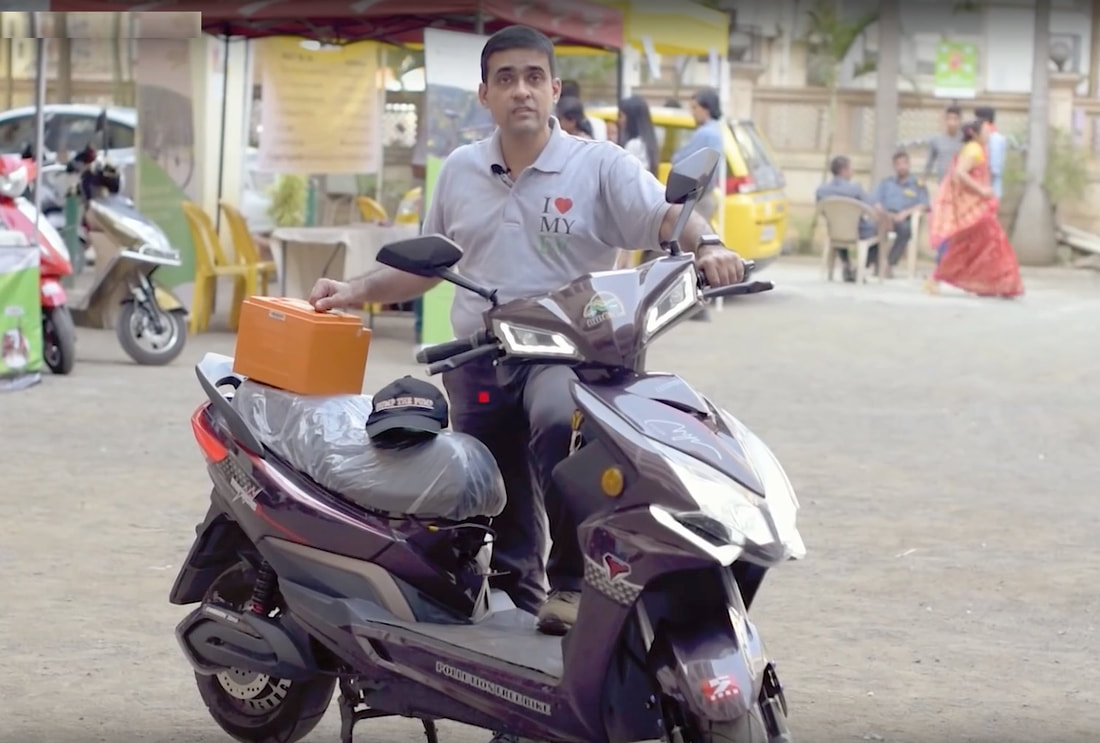But clearly their resistance to move their companies to electric is not for the lack of this understanding. As I talked to more people in this field, I came across many such stories. This was not just limited to four wheelers. Established auto rikshaw manufacturers fighting tooth and nail to resist electric vehicles. That's when I realized. India has a different chicken and egg problem.
All over the world, the discussion about electric vehicles revolves around the chicken and egg problem, what comes first? The charging infrastructure and ecosystem for electric vehicles or the electric vehicles themselves. This problem has been mostly relevant in parts of the world that rely heavily on personally owned cars. But not really for India.
India has it's own chicken and egg problem. But it has nothing to do with charging infrastructure. It has to do with whether big brand automakers make electric vehicles first or consumers start showing preference for electric first.
Lack of charging infrastructure is a real issue for vehicles that everyday run more distance than they can cover on a single charge. Because almost all electric vehicles, especially the ones for personal use, are charged at night when they are parked. So pretty much every morning, you have a fully charged vehicle available. Unlike petrol or diesel cars, which are refilled only at designated stations and with frequency much less than daily.
Out of all the vehicles registered in India, a whopping 70% plus are two wheelers. If the industry is willing, switching all future two wheelers to electric is possible even today. Two wheelers have reached more or less purchasing price parity to petrol two wheelers. And they do not suffer from the problem of lack of charging infrastructure. Because you can charge them every night and have it ready fully charged every morning. And the range on single charge of these two wheelers is more than sufficient for daily driving needs of 95% of the population.
Also many versions also allow you to remove battery and take it home for charging. So forget about needing charging infrastructure on road, you don't even need any charging facility even at your two wheeler parking. You can simply take the battery home and charge.
So, if they are comparable in price, massively cheaper to run per km and do not have charging infrastructure problem, why electric two wheelers have not caught up in India?
The reason is the biggest factor when buying a vehicle is brand. No major two wheeler brand has gone aggressively electric in India.
A lot of people buying two wheeler are investing their several months of salary. They have concerns like what is the reputation of the company? What if the vehicle breaks down? Where will I get spare parts and service? This lack of trust in new brand names and lack of assurance of continued support is what makes people stop in tracks while switching to electric two wheelers.
This is where big brands come into picture. The moment the big brands will make and market electric two wheelers, the picture will drastically change. Two wheelers is the correct entry point for penetration of electric vehicles in a society. This is exactly how it began in China. Chinese government made a conscious decision to switch all two wheelers to electric almost a decade back and as of today, there are very very few petrol two wheelers in China.
These two wheelers consume almost two third of the petrol consumed in the country. Converting all our two wheelers will be a huge step towards reducing pollution and reducing oil dependence. But the two wheeler makers are fat and happy with steady stream of products. Two wheeler industry in India is seeing handsome growth ranging anywhere from 11 to 18% CAGR for more than a decade. And these big two wheeler makers are minting money. They have no desire to change. To some extent that is understandable. Why would anyone change when things are going well?
This is why we need supply side incentives. Only demand side incentives, like subsidy to drive demand, will not work if there are not enough number of models made by trusted brand names. We need a push from government to drive major auto makers towards electric. We need carbon credits, where companies who make polluting vehicles must pay to companies who make clean vehicles. They just can't leave it to market to take care of environment, because it might be too late by the time market realizes this. These carbon credits or other supply incentives, have worked in USA and many other places and has no reason not to work in India.
Consumers can have a big impact on this scenario. With enough collective pressure from consumers, this can change. We need a forum where lot of consumers can visibly pledge not to buy petrol two wheeler.
We, as a society, need to realize that the disadvantages of electric vehicle, like cost and charging, are temporary, and their advantages, like reduction in pollution and reduction in oil dependency, are permanent. That is exactly opposite of petrol vehicles whose disadvantages like pollution and petrol dependency are permanent and their advantage like slightly lower costs and higher range on single charge vis-a-vis electric ones are temporary and already on their way to obsolation.

